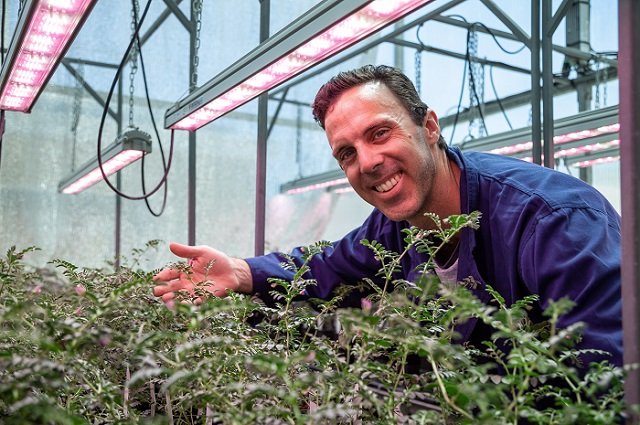
A research collaboration led by The University of Western Australia has created a new technique that speeds up the development of seeds, producing better quality and more abundant pulse crops.
The researchers from UWA’s Centre for Plant Genetics and Breeding developed the pulse-breeding platform to allow seeds to develop faster by rapidly accelerating the plant life cycle.
Australia produces around 2.25 million tonnes of pulses annually, however changes in the production environment such as climate, new pests, water shortages and higher farming costs have led to pulse breeders looking for better strategies to ensure their crop material can adapt to changing conditions.
The accelerated-Single-Seed-Descent platform is the first of its kind that uses LED technology to encourage the plants to flower quickly and develop their seeds faster.
The resultant crops are more resilient, require fewer chemical treatments and have reduced running costs.
Lead researcher, Dr Janine Croser from UWA’s Centre for Plant Genetics and Breeding, said the research was carried out in response to feedback from farmers about practical problems on the land.
“As we move into more instability in our regions, we will be able to respond more quickly to emerging issues and address these through our breeding platforms,” Dr Janine Croser said.
UWA researcher Dr Federico Ribalta said the team had extended the research to investigate the development of key breeding populations for Australian grown legumes.
“Working in close collaboration with breeders means that there is a faster release of new varieties for farmers,” Dr Ribalta said.
This research was supported by the Grains Research and Development Corporation.
Written by Jess Reid.



